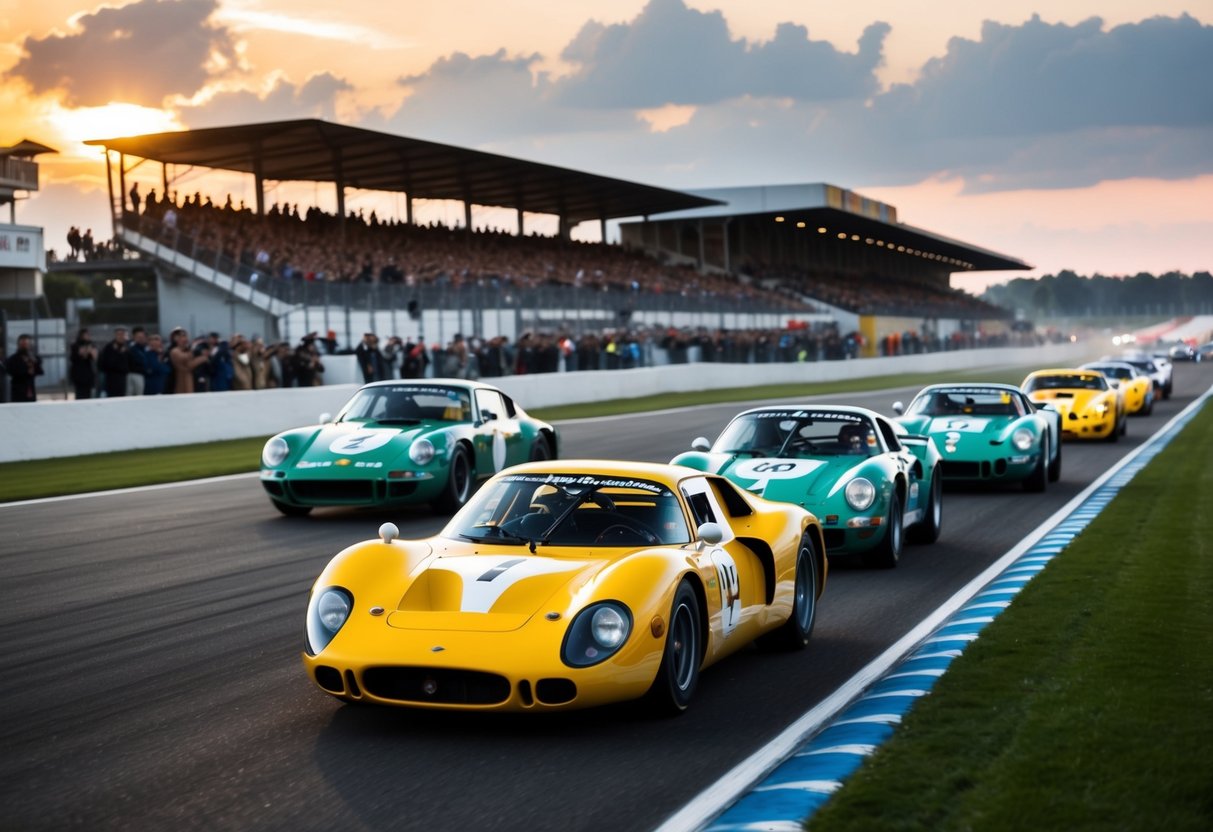
The Enduring Cultural Influence of Le Mans
Le Mans 24 Hours has left an indelible mark on cinema and literature, shaping narratives around speed and endurance. Both popular films and documentary texts highlight its significance in racing history, particularly through figures like Steve McQueen.
Cinema and Pop Culture: The Legacy of Steve McQueen
Steve McQueen’s involvement with Le Mans elevated its presence in popular culture. His 1971 film Le Mans captured the race’s authenticity, reflecting his passion for motorsports. This movie continues to resonate with enthusiasts for its realistic depiction of the grueling event.
McQueen’s contribution brought the excitement and drama of Le Mans to a global audience, embedding it into pop culture consciousness. The film holds a special place among car enthusiasts and remains a significant part of racing lore. Through his work, McQueen bridged the worlds of Hollywood and motorsport, reinforcing the race’s iconic status.
Literature and Documentaries
Literature and documentaries about Le Mans have documented its rich history and stories of triumph and tragedy. Writers and filmmakers have chronicled the event’s evolution from its inception in 1923 to modern-day races. These works contribute to the storied legacy of Le Mans 24 Hours, celebrating the event’s role in racing history.
Numerous books focus on groundbreaking innovations and the legendary drivers who risked it all. Documentaries provide an in-depth look at the technological advancements, fierce competitions, and personal stories that define this race. This extensive coverage highlights Le Mans as a crucible of automotive innovation, underscoring its cultural and historical impact.
Perspectives on the Future of Le Mans Racing
Le Mans racing is evolving through advancements in hypercar technology and the growing importance of sustainability. These changes signal a shift in the way motorsports are approaching performance and environmental impact.
Hypercars and the New Era
The introduction of hypercars in Le Mans racing marks the dawn of a new era. Vehicles like the McLaren F1 GTR have paved the way for innovations that redefine speed and efficiency. This shift is significant within the context of the World Endurance Championship. Manufacturers are focusing on hybrid technology to achieve a balance between power and sustainability. Regulations now emphasize aerodynamics, allowing cars to be faster and more energy-efficient.
Hypercars have become central to the Triple Crown of Motorsport, attracting both established automakers and new entrants. This development encourages competition and technological advancements. With the convergence of design innovation and performance, hypercars promise a captivating spectacle for motorsport enthusiasts. By merging cutting-edge technology with traditional racing values, this new era is both preserving and transforming the legacy of Le Mans racing.
Sustainability and Motorsport’s Role
Sustainability is becoming a crucial factor in the future of Le Mans racing. As environmental concerns rise, organizations are seeking sustainable practices to reduce their ecological footprint. This includes developing alternative fuels and enhancing vehicle efficiency. With global attention on climate change, motorsports must adapt by integrating green technologies.
Le Mans cars are incorporating eco-friendly designs while maintaining their competitive edge. The push towards sustainability is not a constraint on performance but an opportunity for innovation. By aligning with these values, Le Mans can lead by example, setting a standard for responsible racing.
Through commitments to environmental goals, motorsport can play a pivotal role in promoting broader ecological awareness.



